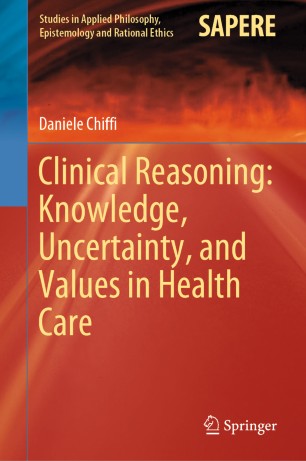

Most ebook files are in PDF format, so you can easily read them using various software such as Foxit Reader or directly on the Google Chrome browser.
Some ebook files are released by publishers in other formats such as .awz, .mobi, .epub, .fb2, etc. You may need to install specific software to read these formats on mobile/PC, such as Calibre.
Please read the tutorial at this link: https://ebookbell.com/faq
We offer FREE conversion to the popular formats you request; however, this may take some time. Therefore, right after payment, please email us, and we will try to provide the service as quickly as possible.
For some exceptional file formats or broken links (if any), please refrain from opening any disputes. Instead, email us first, and we will try to assist within a maximum of 6 hours.
EbookBell Team

4.0
6 reviewsThis book offers a philosophically-based, yet clinically-oriented perspective on current medical reasoning aiming at 1) identifying important forms of uncertainty permeating current clinical reasoning and practice 2) promoting the application of an abductive methodology in the health context in order to deal with those clinical uncertainties 3) bridging the gap between biomedical knowledge, clinical practice, and research and values in both clinical and philosophical literature. With a clear philosophical emphasis, the book investigates themes lying at the border between several disciplines, such as medicine, nursing, logic, epistemology, and philosophy of science; but also ethics, epidemiology, and statistics. At the same time, it critically discusses and compares several professional approaches to clinical practice such as the one of medical doctors, nurses and other clinical practitioners, showing the need for developing a unified framework of reasoning, which merges methods and resources from many different clinical but also non-clinical disciplines. In particular, this book shows how to leverage nursing knowledge and practice, which has been considerably neglected so far, to further shape the interdisciplinary nature of clinical reasoning. Furthermore, a thorough philosophical investigation on the values involved in health care is provided, based on both the clinical and philosophical literature. The book concludes by proposing an integrative approach to health and disease going beyond the so-called “classical biomedical model of care”.